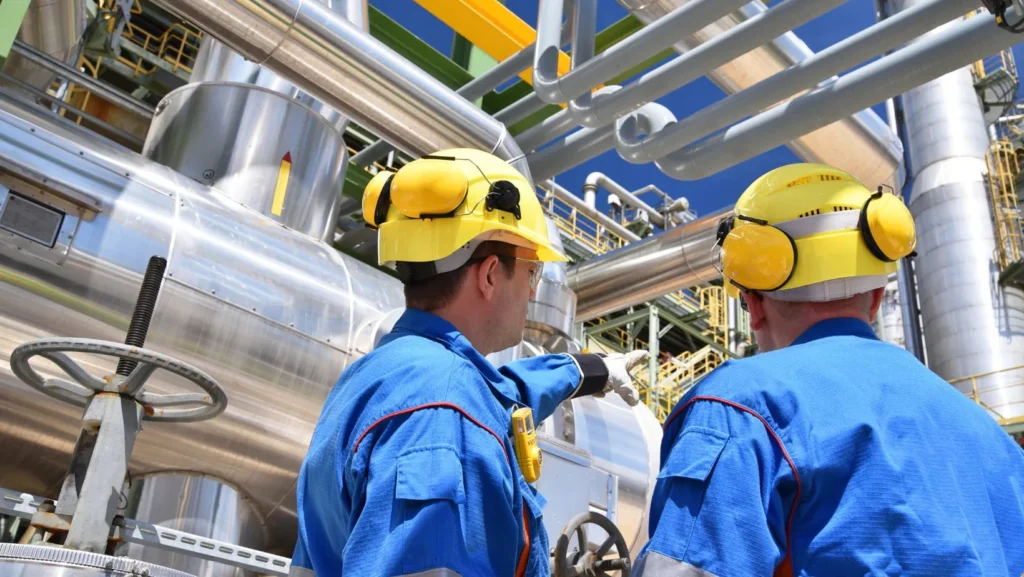Learning Outcomes for the Level 2 Diploma in Chemical Engineering 30 Credits – 3 Months:
Unit 1: Introduction to Chemical Engineering Principles
By the end of this unit, learners will be able to:
- Understand and explain the fundamental principles of chemical engineering, including chemical reactions and basic process engineering concepts.
- Apply mass and energy balances to simple chemical processes.
- Identify and describe key chemical processes used in industry.
- Recognize the role of chemical engineers in various industries and their impact on process design and optimization.
Unit 2: Health, Safety, and Environmental Practices in Chemical Engineering
By the end of this unit, learners will be able to:
- Understand and apply health and safety regulations relevant to chemical engineering practices.
- Conduct basic risk assessments and identify safety hazards in chemical environments.
- Understand the importance of environmental sustainability and apply environmentally responsible practices in chemical engineering processes.
- Demonstrate knowledge of proper handling, storage, and disposal of hazardous chemicals.
Unit 3: Chemical Engineering Equipment and Process Control
By the end of this unit, learners will be able to:
- Identify and describe the types of equipment used in chemical engineering, including reactors, pumps, and distillation columns.
- Understand the principles of process control systems and their role in maintaining safe and efficient chemical processes.
- Demonstrate basic knowledge of instrumentation and control techniques used to monitor and optimize chemical processes.
- Understand the maintenance and operational requirements of chemical engineering equipment in a plant environment.
Upon successful completion of the ICTQual Level 2 Diploma in Chemical Engineering, learners will have a range of progression options to further their education and career in the chemical engineering sector:
1. Career Progression
- Process Operator or Technician: Graduates of the Level 2 Diploma can enter the workforce in roles such as Process Operator or Chemical Plant Technician, where they will operate and maintain equipment and systems in chemical processing plants.
- Engineering Assistant: With the foundational skills gained, students can pursue roles as Engineering Assistants, providing technical support in design, maintenance, or operations within chemical engineering teams.
- Health, Safety, and Environmental (HSE) Officer: For those particularly interested in safety, the knowledge from the Health and Safety unit can lead to opportunities as an HSE Officer in industrial settings, ensuring safety compliance and environmental responsibility.
2. Industry Certifications and Specializations
- Industry-Specific Certifications: Learners may pursue additional certifications in areas such as Process Control Systems, Hazardous Materials Management, or Sustainability Practices, which can enhance employability and career progression within the chemical engineering field.
- Apprenticeships or On-the-Job Training: Many students choose to undertake apprenticeships with chemical engineering firms to gain hands-on experience while continuing their education. These programs offer a blend of practical work and academic study, preparing individuals for advanced roles in the industry.
Completing the ICTQual Level 2 Diploma in Chemical Engineering opens numerous pathways for further study and career advancement, allowing individuals to grow in technical expertise and take on more complex responsibilities in the chemical engineering sector.

